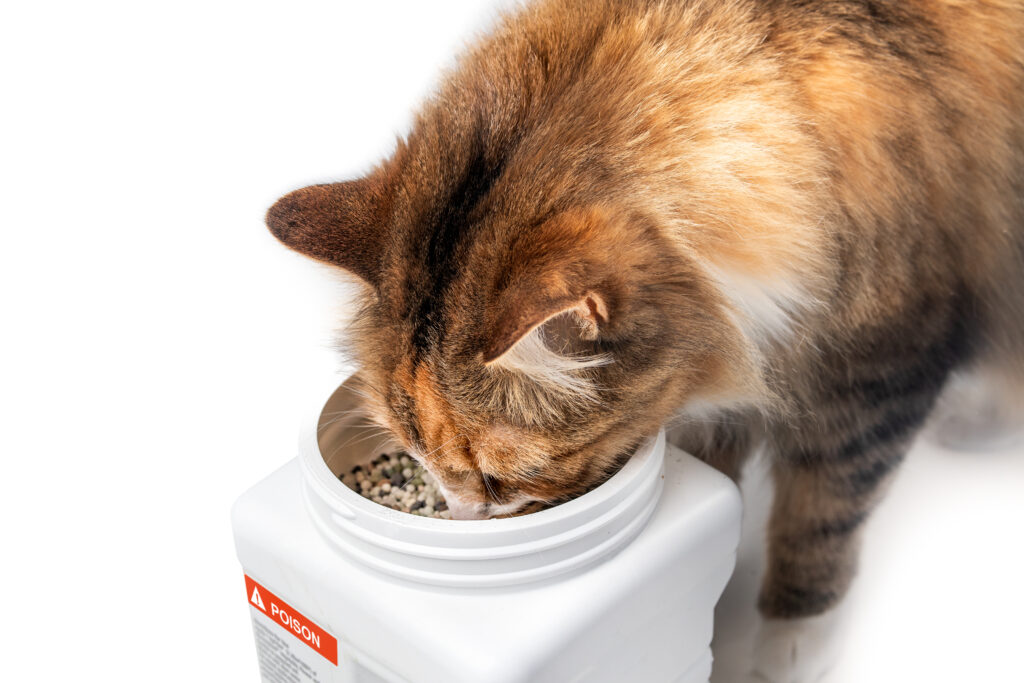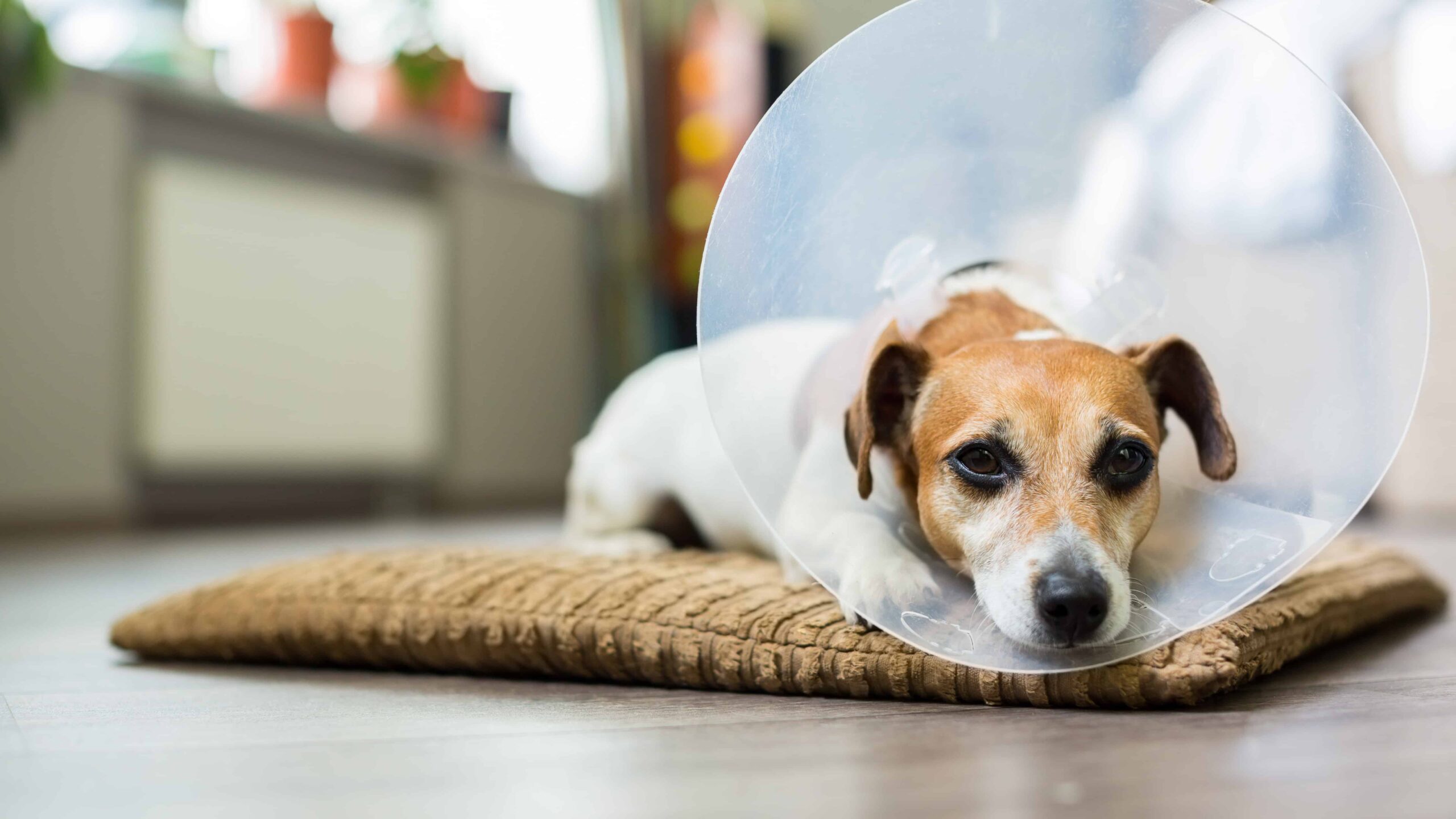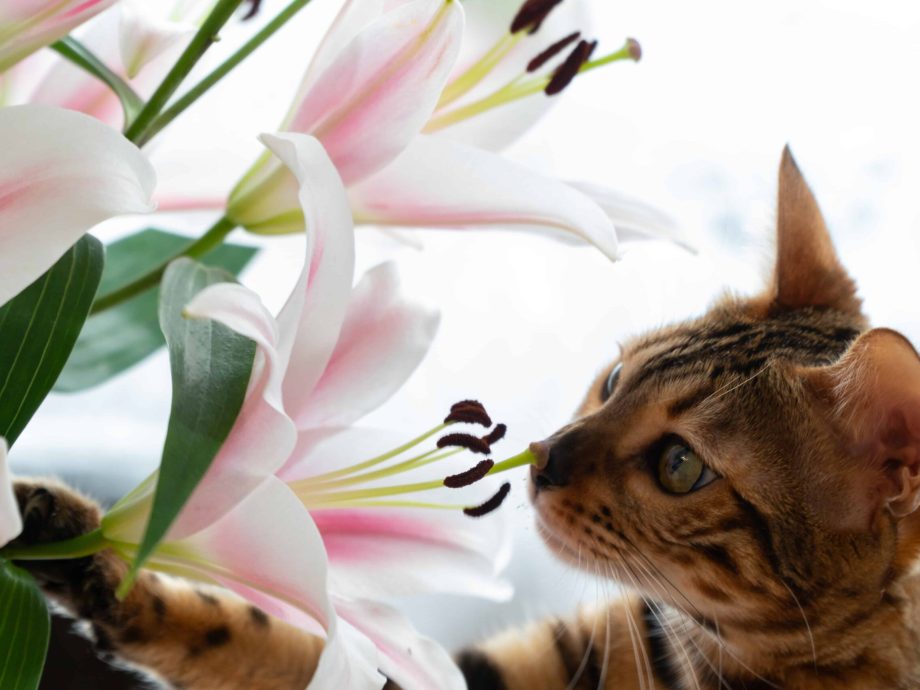WHAT’S IN THIS ARTICLE?
If in doubt, it is important to contact your veterinary surgeon as soon as the ingestion is witnessed or suspected, to be able to act quickly. There is an extensive list of potential hazards, and here you will find a summary of the most commonly found.
Plants
- Lilies: Any part of the plant, including the water that has been used to water the plant, can cause severe renal failure in cats. They can cause vomiting, hypersalivation, depression and lack of appetite within 1-2 hours after ingestion, followed by renal failure and lack of urine production within 2-4 days. It is important to contact your veterinary surgeon as soon as possible. In the meantime, try to stop your cat from grooming, as there may be remnants of pollen in the fur.
- Christmas Flower / Poinsettia: Can cause gastrointestinal signs (vomiting, diarrhoea and hypersalivation) after its ingestion.
- Cycas Revoluta / Sago Palm: It can be severely poisonous to dogs, causing vomit and diarrhoea with blood due to clotting abnormalities, liver failure and death.
- Mushrooms or Fungi / some of the species: Many can cause vomiting and diarrhoea, but some can lead to abnormal heart rhythms and organ failure.
- Please be aware that there are quite a few garden and house plants that are toxic to pets.

Human Medicines and E-Cigarettes
- Vitamin D: This is a vitamin that is commonly found in supplement tablets for humans and creams for psoriasis (amongst others). It can increase the calcium and phosphate levels in the blood and cause renal failure, as well as gastrointestinal and heart problems.
- Paracetamol: This medication can be used in dogs but a different dose than the human doses. Therefore, never administer paracetamol without veterinary guidance. Cats are extremely sensitive to paracetamol and there is no safe dose, so this medication should never be administered to cats.
- Ibuprofen: It can be extremely harmful, causing gastrointestinal ulceration and potentially perforation as well as renal damage. Even small doses can cause adverse effects and therefore it should never be administered to pets.
- E-Cigarettes: The liquid that these devices contain is very toxic to pets especially if containing nicotine which can be lethal. They can be tempting due to the smell. The glass or battery can also be harmful and therefore these devices should be kept out of reach of pets.
Pesticides or Garage Products
- Antifreeze: This has a sweet taste and can be appealing, especially for cats. It is particularly dangerous in the cold winter months and can be in the car screen wash and engine cooling fluids. The damage occurs very quickly and causes irreversible renal failure.
- Weedkillers and Slug Pellets: Can be harmful to pets if they are swallowed. Slug pellets contain a component called metaldehyde which can be lethal. Therefore, always follow the instructions for use and safe storage.
- Rat Poisoning / Rodenticides: There are different types of these products and if you suspect this intoxication in your pet, it is helpful to provide your veterinarian the specific name of the product. They are most commonly anticoagulant rodenticides and cause severe bleeding that can happen several days (from one to seven days) after ingestion.

Outdoor Hazards and Others
- Processionary Moth Caterpillars: Ingestion of the caterpillar can cause urticaria, due to the hairs in which they are covered. This can cause necrosis (tissue death) of the tongue and digestive tract and if untreated can be fatal.
- Adder Bites: They can be dangerous, especially if bitten in the face. Bites can cause swelling and respiratory compromise, due to the venom injected. This can cause a widespread inflammatory reaction, severe irregular heartbeat and multiple organ failure.
- Blue Green Algae: This algae can be in fresh water, usually when the weather is warm. It can cause neurological and liver damage.
- Coins: Ingestion of coins or other objects that contain zinc can cause gastroenteritis and red blood cell destruction. This reaction can be delayed following its ingestion.








